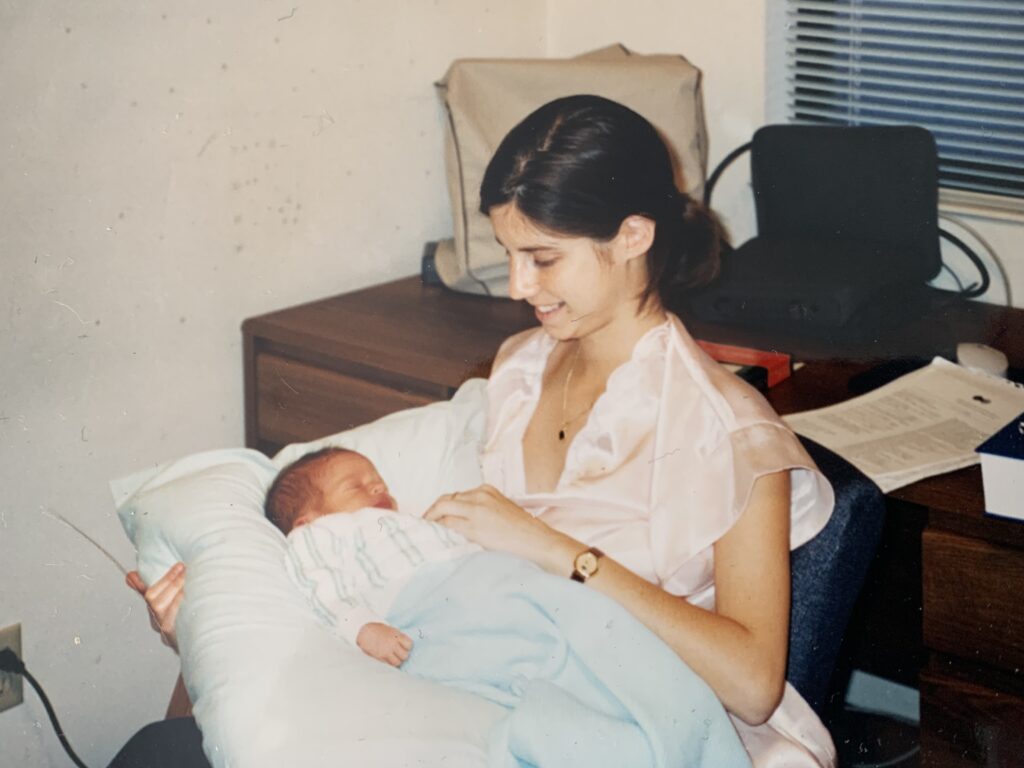
Pre-pregnancy, I was blessed with lovely breasts the firmness of ripe avocados. A few days after Diego was born, they were more like watermelons, so huge a person standing behind me could see a significant portion of them.
The tissue covering them would have torn had it been paper and not skin. Instead, a web of stretch marks resembling a vast river delta emerged overnight.
My nipples flattened out and Diego couldn’t latch on to them. Then there was the pain -the excruciating, unanticipated pain. My breasts were so tender even water from the shower hitting them hurt.
The nurse on the phone casually suggested I pump. Either she’d never come across a case like mine, or she had no qualms about telling women in my condition to subject themselves to torture.
Pumping It Out
As it turns out, the instrument of torture, aka the breast pump, worked. Some days later, my breasts began to soften and the nipples to grow a tip, which allowed Diego to finally latch on and naturally pump out the milk himself. Even though at first it felt as if someone was pinching me right where I had a painful bruise, I was overjoyed.
In time, the breast milk flowed like water from a geyser. I must’ve gone through hundreds of boxes of those nursing pads that absorb leakage. In my case, leakage meant ounces of liquid shooting out through various pin-sized holes in my breasts. I would triple up on the pads and still the milk would leak through and form two amoeba-shaped designs on my shirt.
I quickly learned to recognize when my breasts were revving up to relieve themselves. With Diego, nature worked it out for my maternal milk supply to closely match his nutritional needs. I would’ve needed to be by his side 24/7 and nurse him on demand, however, to prevent any of the magical liquid from ending up on pads and clothes.
I tried to always get there on time and to have my nipples out and ready for Diego before my breasts burst. Often, though, they would just explode three seconds before I got to Diego, time enough for a good ounce of milk to go to waste. It was very much like when you need to pee and can hold it and hold it and hold it…. only for some pee to be released and wet your clothes as you unbutton your pants
The Breasts Know!
The physical response is telling of the mother-child connection, both physical and emotional. I’m not suggesting the connection only develops when you nurse your baby, only that your breasts knowing when your baby’s hungry is a powerful example of it.
No wonder we are “emotional” toward our kids and our kids are also more “emotional” around us, especially when they’re young.
It’s NORMAL!
But instead of seeing it as normal, we get gaslit, as if we were holding our kids back. We get things like, “Jenny gets all whiny and needy around you. She never does that when you’re not around.” Our kids are apparently capable when we’re not there; the minute we get home they revert to immature and needy.
If you’re a new mom, know this: When others call you emotional, what it normally means is connected.
I nursed Diego for nine months, and his brother Andres for about four. Breastfeeding was my first parenting challenge, one that ended well, if you overlook the cosmetic aftermath, which I wrote about here:
What Two Boob Jobs Have Taught Me About Beauty, Confidence and Hindsight

